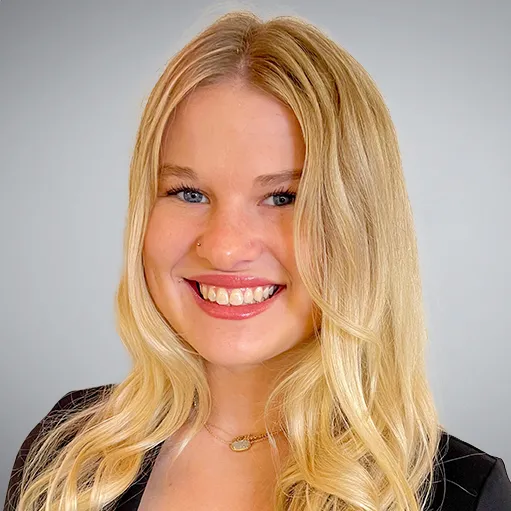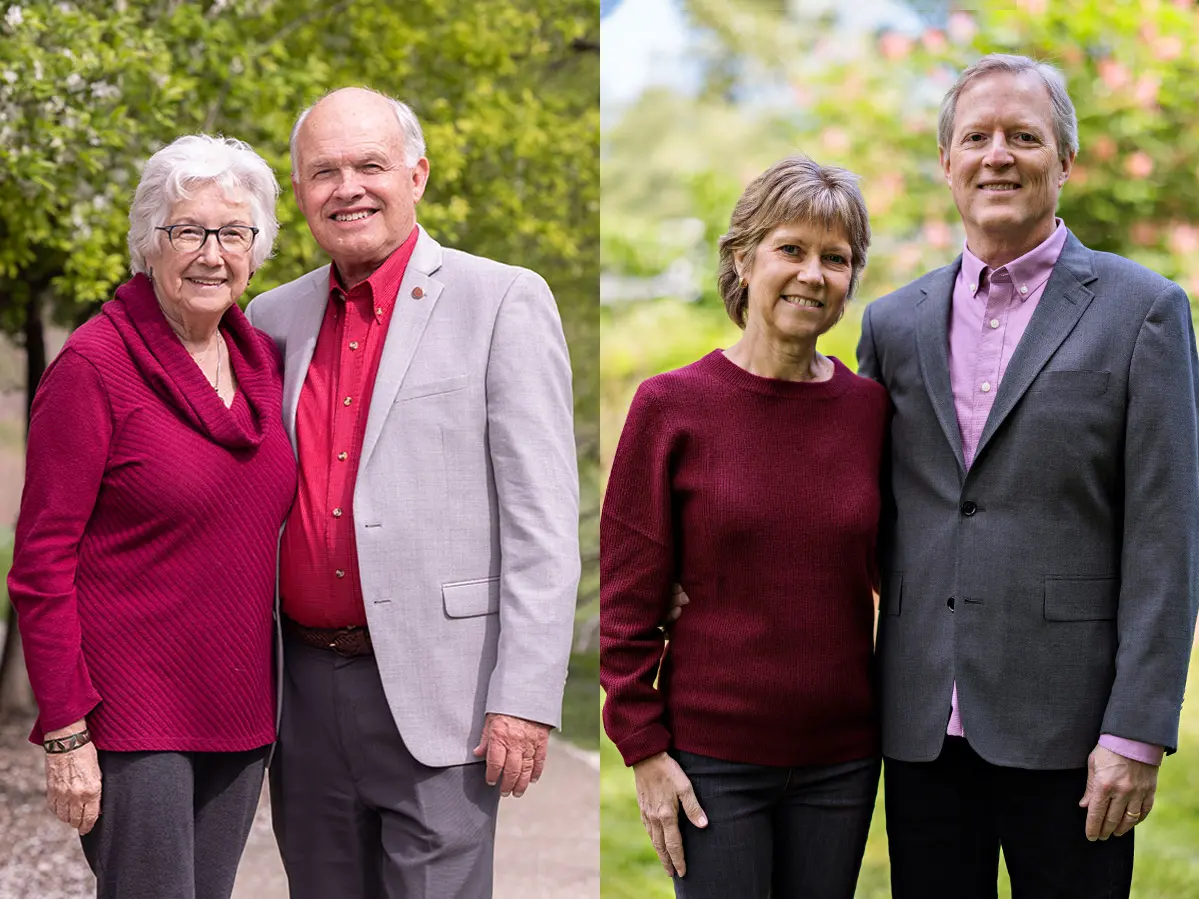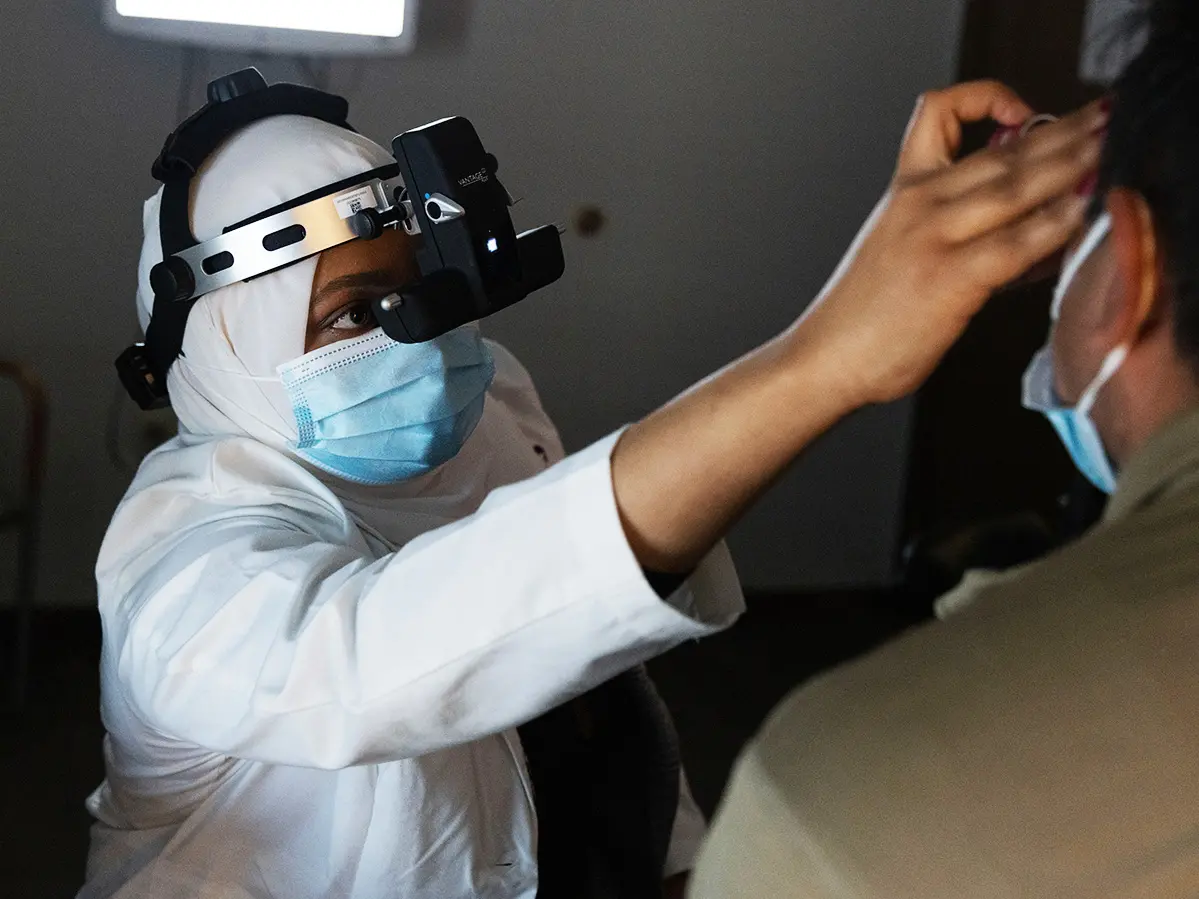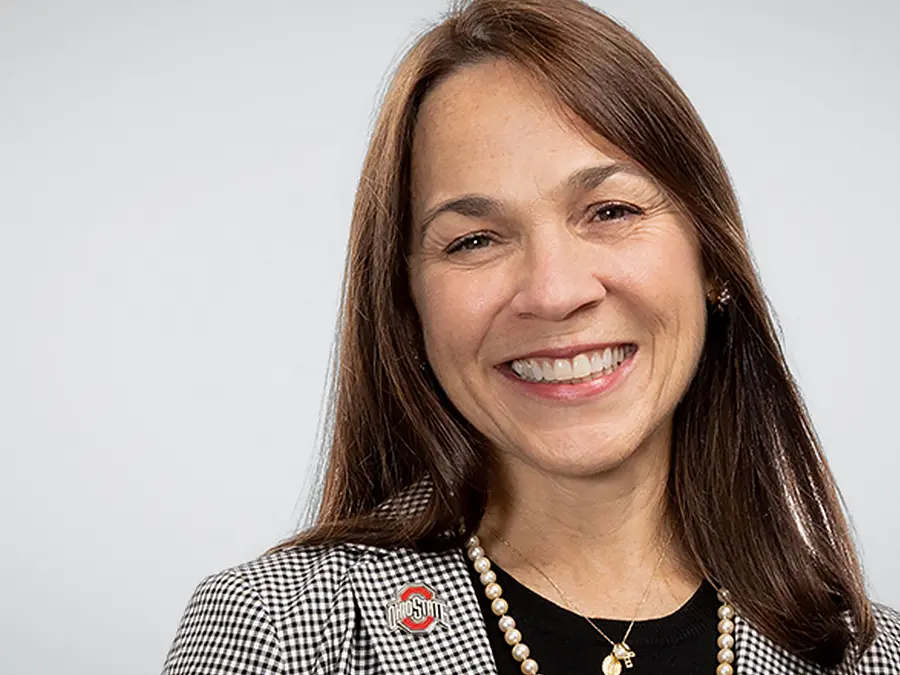Women & Philanthropy: A group investing in the future
Members pool their donations to provide scholarships and research grants to help Buckeyes change the world.
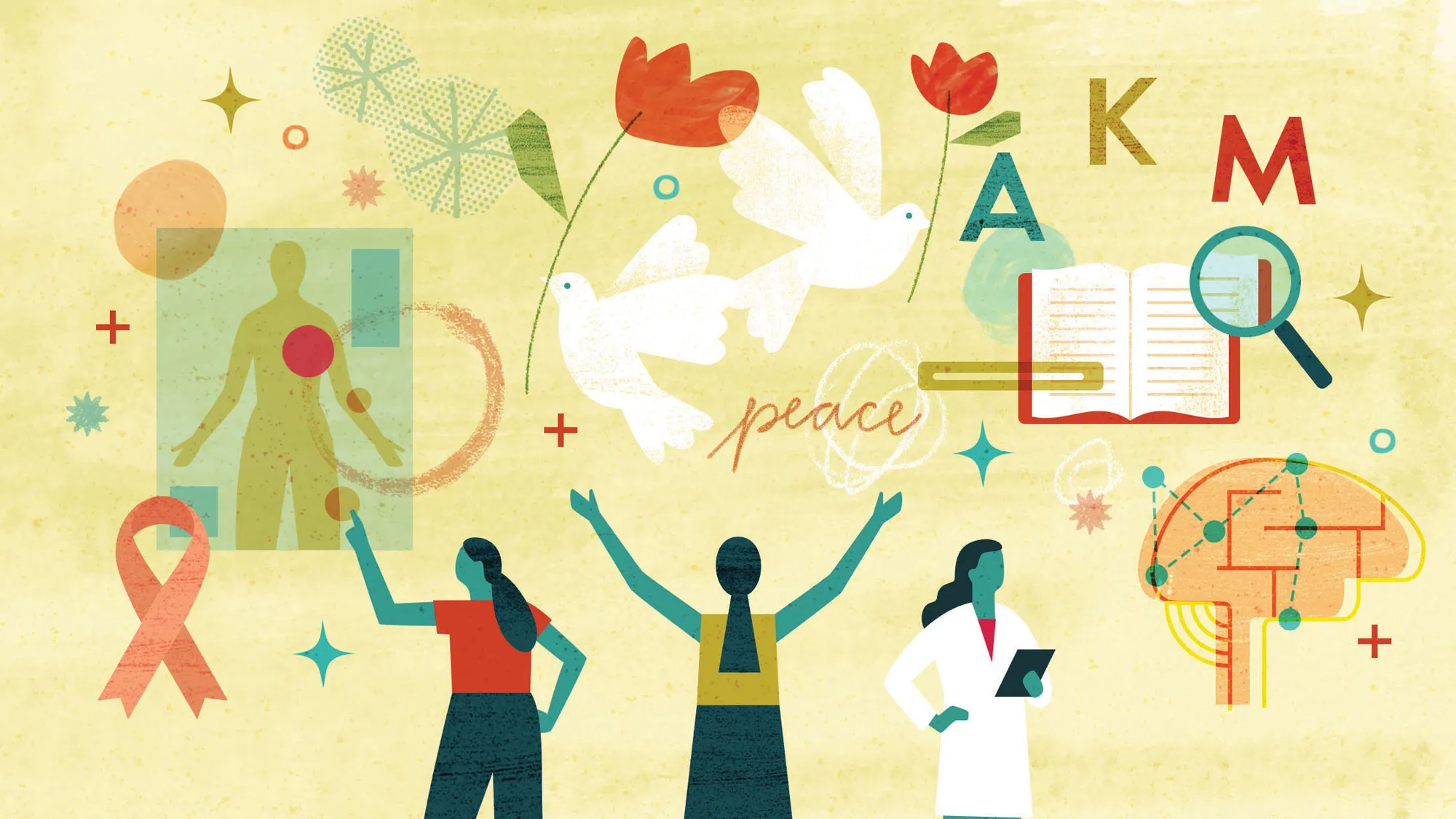
(Illustration by Dante Terzigni)
“It’s all about women investing in women,” says Alex Anthony ’11, ’11.
She’s the chair of Women & Philanthropy, a group of 143 members of all ages and backgrounds who share a passion for supporting fellow Buckeyes. “We can do more with our money together,” Anthony says.
So members pool their donations, more than $2.8 million since their start in 2006, to annually fund six four-year scholarships. And through a competitive application process, the group awards grants of up to $50,000 to visionaries who are conducting research that will improve people’s lives. The grants are made exclusively to Ohio State faculty and staff.
“We’re proud to see incredible women doing incredible things in their communities,” Anthony says.
Here’s a look at the work of faculty who received funding this year.
Detecting breast cancer
We know that early detection of breast cancer saves lives, yet each year, some 43,000 women die from the disease in the United States alone. “Proactive care equals better outcomes,” says Asimina Kiourti, associate professor of electrical and computer engineering. She and her team are developing safe, accurate and more accessible technology to catch breast cancer earlier. They are creating wearable devices combining microwave imaging — which doesn’t rely on the big machinery required for mammograms or MRIs — with artificial intelligence that can boost image accuracy and resolution. Picture a bra with sensors that would be put on to complete a screening. The result would be much more manageable for patients and care providers in low-income and rural locations while costing less than traditional technologies.
Preventing genocide
Hollie Nzitatira, associate professor of sociology, helps prevent genocide, a mission that is at once globally focused and close-to-home: Her husband, Sunday, narrowly escaped the Rwandan mass genocide in 1994. Similarly, her research is both broad and targeted. In work regularly reported to the United Nations, Nzitatira and her team research dozens of data points about different countries — whether there is peace or war, calm or political upheaval, good or bad economic times, a history of violence or not — to forecast the current risk of genocide. Then in personal interviews, she talks with people who were responsible for genocide and those who sheltered others during such atrocities. The combination of analyzing data and interviewing people provides understanding about how such mass tragedies take place and how they can be avoided. “We have to strive to care about people all over the world,” she says.
Helping young readers
“Literacy is a right, not a privilege,” says Zeynep Saygin, associate professor of psychology. She researches how the reading and language sections of the brain develop and how dyslexia — the most common learning disability for American children — can be identified earlier. A team led by Saygin, who has years of experience in psychology and neuroscience, is using a gentle approach to scan the brains of babies, repeating it as the children age to predict who is at risk for dyslexia. Saygin hopes to make it possible to implement reading interventions earlier, sparing children from years of education and social struggle in learning to read. Saygin also aims to include children of all backgrounds, helping to address the underrepresentation of minority children in brain research.
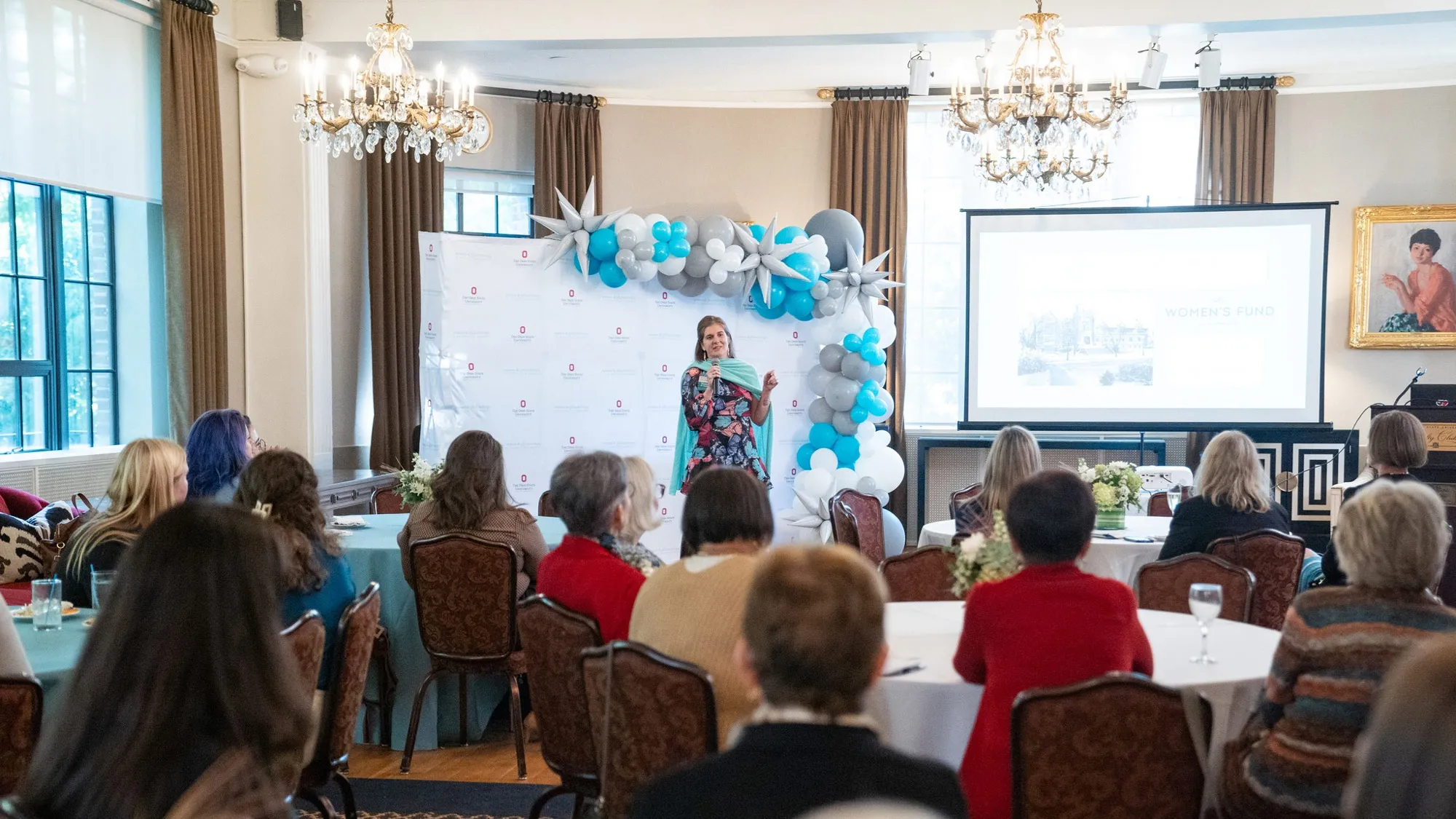
President Alex Anthony speaks at a Women & Philanthropy welcome event in September at the Faculty Club. The group got together to kick off a new year of giving, welcome new members and hear from Assistant Professor Julianna Nemeth, an expert on community health.
Women & Philanthropy
To learn more about this community of mission-driven Buckeyes, including how to join, visit its Ohio State website.
